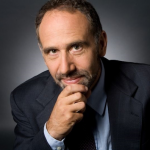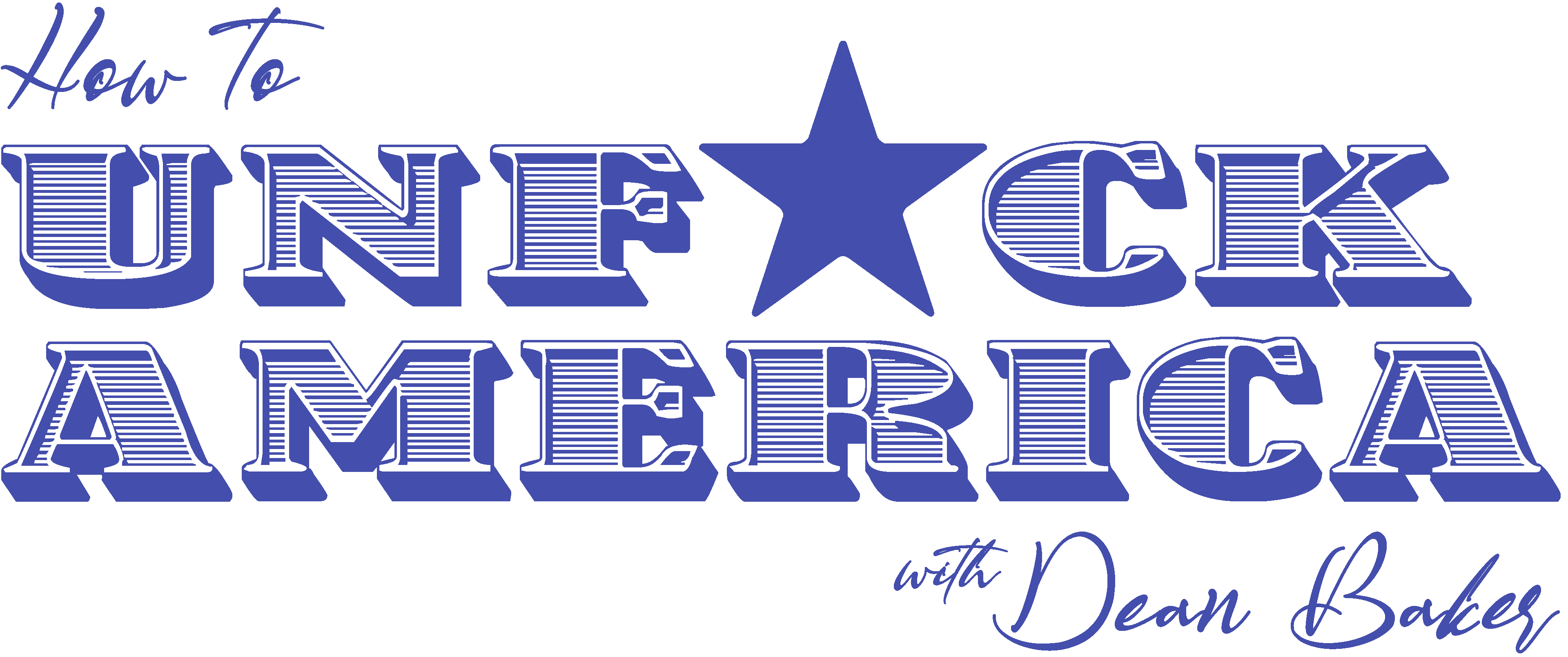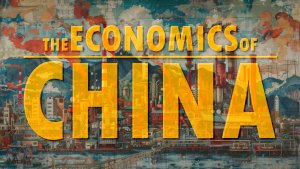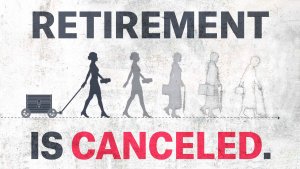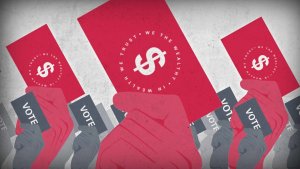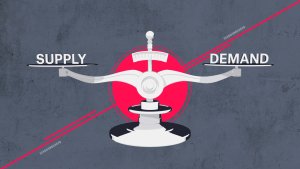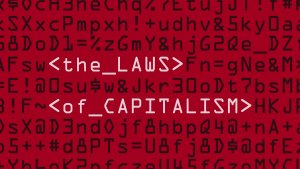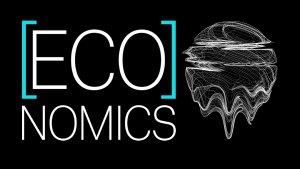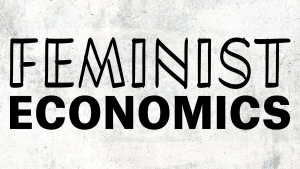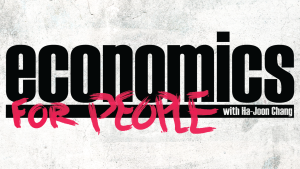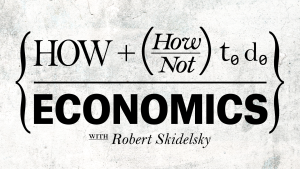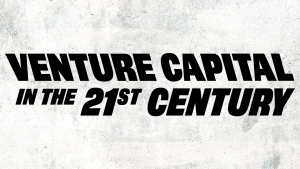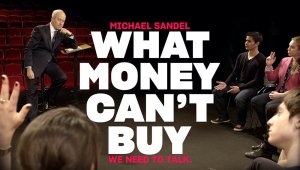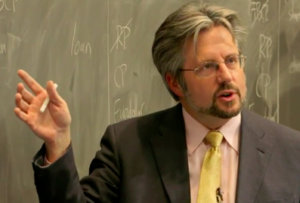This series is all about solutions.
Dean Baker shows us how public policy can be deployed to Unf★ck America. Over six episodes, Baker illustrates how even minor changes in public policy can help change our trajectory dramatically. It just takes the political will to recognize that the current situation is not insurmountable, and that change is achievable.
“If we want to, we can structure the market differently.”
EPISODE 1
How to Unf★ck Intellectual Property
Dean Baker tells the dirty secret of the great billionaires of the modern age: they wouldn’t exist without intellectual property (IP), that is the copyright and patent monopolies guaranteed to private actors by the government.
IP laws have been expanded and strengthened in recent years, making patent & copyright monopolies longer and stronger and enabling the vast fortunes of billionaires in computers, software, pharmaceuticals, medical equipment etc. Baker diagnoses the role of intellectual property (IP) in the accumulation of wealth for pharmaceutical companies and how that translates to excessively high drug prices, and wasteful spending on marketing and lawsuits. IP laws were intended to subsidize innovation for social benefit, but they have been transformed into tools to accumulate and protect enormous private wealth. The modern protections of IP have become excessive and may not be the most fruitful producer of research and development beneficial for society.
What's the fix? Dean’s proposals include direct public funding of open research & development, rather than rely on IP alone, which will allow the development of generics. He proposes the introduction of a Copyright Tax Credit to support innovation and creative work as a temporary alternative to copyright. Meaning creators and artists could sign for a tax credit to fund their projects but forego copyright for a set number of years.
EPISODE 2
How to Unf★ck Unemployment
Dr. Baker explains how the employment rate in the economy is a matter of the government's fiscal and monetary policy. Baker contrasts the macroeconomic insights of John Maynard Keynes vs. the more recent views of Milton Friedman when it comes to government spending, unemployment, and inflation. Baker goes on analyze the Federal Reserve's role with particular attention to the decision of recent board chairs (Volker, Greenspan, Bernanke, Yellen, and Powell) on setting interest rates (federal funds rate) and the policy goals they have targeted.
Baker explains how fiscal and monetary policy has lately focused more on limiting budget deficits and fighting inflation, rather than maintaining high levels of employment. Abandonment of post-war Keynesian full employment policy, and embrace of the Monetarist NAIRU fiction since 1980, has allowed the US government (and the Federal Reserve in particular) to engineer recessions and tolerate excessively high levels of unemployment.
What's the fix? Dean proposes to restore full employment as a macroeconomic policy goal and ensure that workers at the middle and bottom of the wage ladder have the bargaining power to secure wage gains. The Federal Reserves should be focused on maintaining full employment, rather than being obsessed with inflation and prematurely raising rates to the detriment of employment and labor markets.
EPISODE 3
How to Unf★ck CEO Pay
Dean Baker explains how CEO pay has increased enormously over the past four decades while shareholder returns have remained low. Weak corporate governance has allowed management to 'capture' corporate boards – and push through massive executive pay increases.
Baker shows how in many cases their compensation has nothing to do with the return to shareholders. Baker breaks down the CEO pay scam into four parts: patterns of CEO pay, the alternative argument for CEO pay, evidence that CEOs are overpaid, and why it matters. He asks the simple question of what is the CEO-to-worker compensation ratio, why is it so high, and is a fair market or highway robbery? While providing a brief explanation of why CEO pay increases may be justified, he provides evidence CEOs do not earn their pay. Special emphasis is on the CEO and shareholder relationship and the lack of consequences for famous CEOs like Robert Nardelli, John Stumpf, Dennis Muilenburg.
Finally, Baker prescribes fixes to CEO pay such as using a "say on pay" legislation, giving minority shareholders more of a say, mutual fund proxy votes, and higher marginal tax rates.
EPISODE 4
How to Unf★ck Finance
The financial sector produces a lot of wealth... and waste. Dean Baker explains why it's bloated and broken.
Since the 1980s, the financial sector has been permitted to expand greatly, with deregulation and practically no taxes. This was all done in the hope of improving efficiency in the allocation of capital and the economy overall. But Dr. Baker shows that while the financial sector has grown, it has not fulfilled its promise - it has not improved productivity, it ties up and wastes a lot of resources, it produces periodic socially devastating crises and relies on government to bail out its poor decisions, it has generated vast individual fortunes at the top unjustified by its returns.
What's the fix? Dr. Baker recommends a financial transaction tax (FTT) to curb its reckless growth, improved competition in financial services, including government-provided retirement and bank accounts, better regulation of financial products, and ending the favorable tax treatment of hedge funds and private equity.
EPISODE 5
How to Unf★ck Employment
Competition isn't for everyone. The salaries of high-end professionals are often artificially protected by public policy, without benefit to the public.
Over the past forty years, US trade deals have been negotiated to expose manufacturing workers to international competition and put downward pressure on their wages, while protecting high end professionals from both domestic and foreign competition. This has increased wage disparity and inequality between low and highly educated workers in the US.
Dr. Baker compares the salaries for high end professionals (physicians, lawyers, dentists, etc.) on the income distribution. Barriers to entry like licensing regulations have been put in place to protect high-earning medical practitioners from both domestic and foreign competition. Insurance regulations allow specialists to set their own compensation. Lawyer incomes benefit from unnecessary complexity in legal processes, tax codes and intellectual property laws. These are all state policies that have protected the earnings of highly educated professionals.
By contrast, manufacturing jobs have declined in the US, and there has been downward pressure on the wages of less-educated workers. Much of it is due to the increased competition brought about by foreign trade deals negotiated over the past few decades. This was a conscious policy choice. The absolute decline in incomes in low-wage sectors was already predicted by the famous Stolper-Samuelson theorem in international trade theory.
EPISODE 6
How to Unf★ck Inequality
Dean Baker revisits the major policy implications of the series.
To Unf★ck America we need to lower the age for Medicare and expand Medicaid, add a public option to buy in, shrink the role of patents to bring competition back to the marketplace, and strengthen price controls on patented drugs. He also suggests policies at the state and local level like increasing minimum wage, providing unemployment insurance, creative work tax credits, and to increase corporate tax rates. He also urges more democratic decision making in private institutions. Finally, think like a Republican, but not in the way you think!
We need to fight strategically, and with full force, for an economy that works for everyone. Not just the rich.
